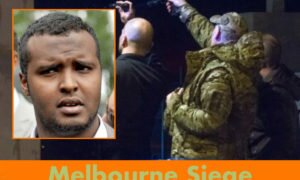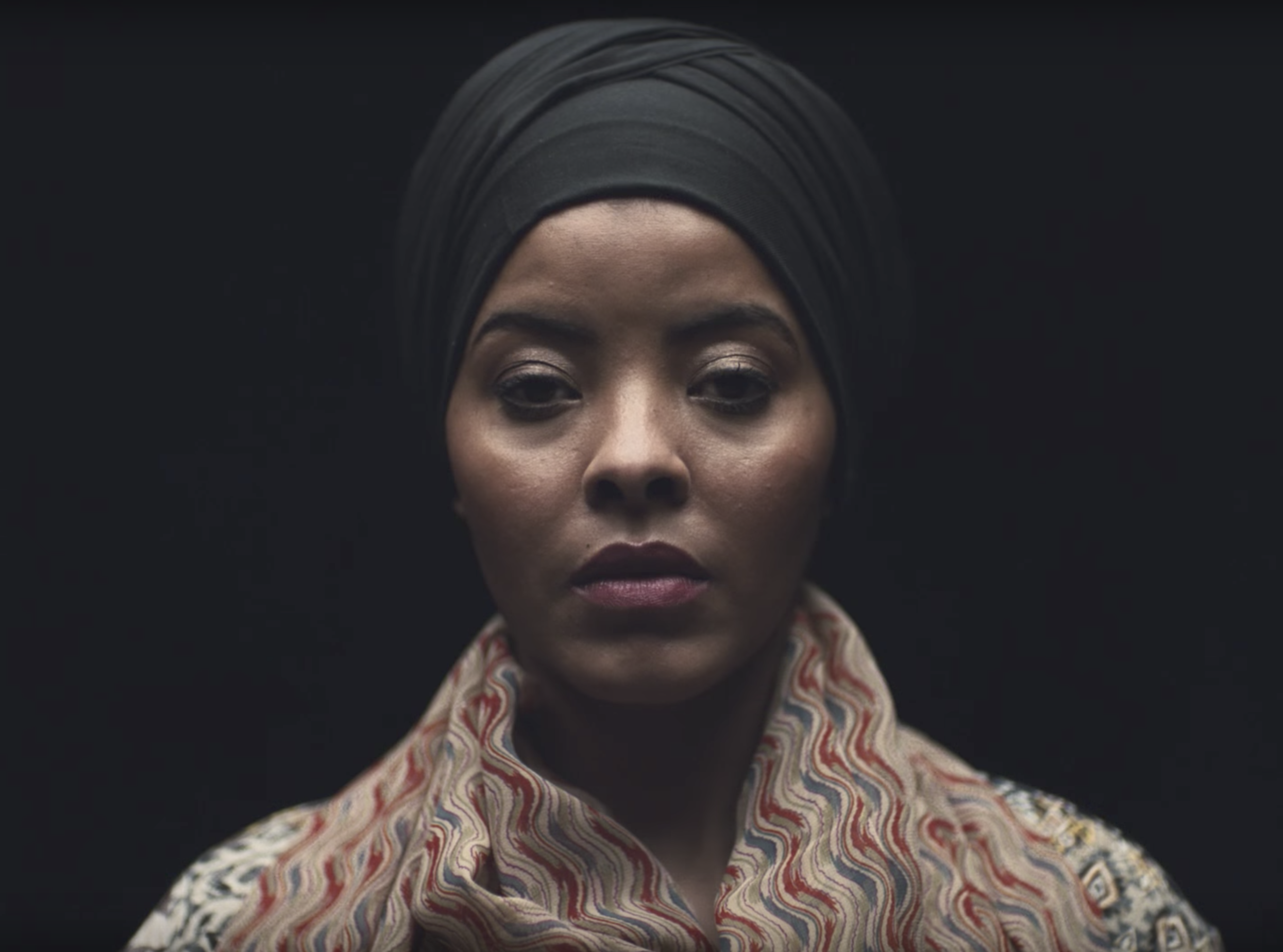Man acquitted of plotting attack on Sydney’s Holsworthy army base was isolated from his family and on parole for a violent home invasion
Ben Doherty
Yacqub Khayre – who murdered one man and shot at police in an Islamic State-inspired terrorist attack in Melbourne on Monday – was isolated from his family and community, addicted to drugs and had an extensive history of violent crime.
He came to the attention of counter-terrorism police in 2009 when he was one of five men accused of plotting an attack on Sydney’s Holsworthy army base to kill soldiers. While he was ultimately acquitted of that offence, his violent criminal history ran further back.
In 2007, at the age of 19, Khayre was sentenced for more than 40 offences, including multiple counts of burglary, aggravated burglary, theft, unlawful assault and drug possession.
Brighton siege: gunman Yacqub Khayre may have lured police to apartment
On bail for earlier offences, Khayre had accosted a man on a train, pulling out a knife and demanding money and his phone, before stabbing him twice in the leg.
Police and courts were aware of a longstanding drug and alcohol abuse problems.
In sentencing Khayre for a drug-affected violent home invasion in 2012 – for which he was on parole when he committed Monday’s attack – Judge Felicity Hampel said he was a young man with a “very sorry criminal record” and “gloomy prospects” for rehabilitation.
“There is a real risk you will become even more isolated than you are now, institutionalised, and at increasingly high risk of reoffending. You are now isolated from your family and community. There was no family at court to support you.”
Born in Somalia, Khayre was taken by his parents from war-ravaged Mogadishu when he was three. His family migrated to Australia via a Kenyan refugee camp in 1991. Police said he had been recognised as a refugee under Australia’s humanitarian migration program. Khayre was an Australian citizen.
In 2009, aged 21, Khayre returned briefly to Somalia and attended a training camp. His uncle, Ibrahim Khayre, told the Sydney Morning Herald he believed this is when “weapons and military training may have happened”.
In the same year, he was arrested as part of a terrorist plot to kill soldiers at Holsworthy barracks. Khayre and another co-accused, Abdirahman Ahmed, were both acquitted of the plot charges, the court hearing Khayre had not planbed to go through with the assault.
But three others – Wissam Mahmoud Fattal, Saney Edow Aweys and Nayef El Sayed – were convicted and sentenced to 18 years in prison.
During the terrorism charges case, the Victorian supreme court heard that Khayre had been a worshipper at the Preston mosque, and had later been attending the smaller 8 Blacks prayer hall, once a snooker hall behind a 7-Eleven convenience store, and regarded by police as an incubator of extremist ideology and a hub for a network of Islamist operatives.
Five men from a small reading group at the 8 Blacks prayer hall were accused of plotting the terrorist attack on the barracks in 2009, planning to infiltrate the army base carrying military-grade weapons and kill as many soldiers as possible, before they ran out of ammunition or were killed themselves.
The men had been seeking a senior cleric willing to issue a fatwa legitimising their assault.
But after police discovered – unrelated to the attack – that money was being sent from Australia to the terrorist group al-Shabaab in Somalia, undercover officers infiltrated the group. The Holsworthy plot was uncovered and the men arrested before they could carry out the assault.
Khayre was remanded in custody between August 2009 and December 2010 on the terrorism charges. He later claimed the time in prison had a damaging effect on his mental health and, upon release, he relapsed into heavy drug use and began criminal reoffending.
On 22 April 2012, high on ice and carrying a flick-knife, Khayre invaded a home in Dallas, in Melbourne’s north. Khayre stole jewellery, money tins, a handbag and a computer before he was interrupted by a woman who lived in the house returning home from a night out about 2.40am.
He punched the woman in the stomach and back before assaulting her father, who had been woken by the fighting. The father and daughter wrestled Khayre to the ground and sat on him until the police arrived.
Police say Khayre was so affected by drugs when he was arrested he was unable to be interviewed.
Khayre pleaded guilty to aggravated burglary, theft, intentionally causing injury, recklessly causing injury and giving a false name.
In sentencing Khayre to five years in prison, with a non-parole period of three years, Justice Paul Coghlan described Khayre’s assault on the father and daughter as “repeated acts of gratuitous violence”.
Coghlan noted Khayre’s time on remand for the terrorism charges of which he was ultimately acquitted. “What was clear enough was that not long after release the applicant continued using ice, broke up with his family and started reoffending.”
Khayre was paroled “at a later point than he might have hoped”, Victoria’s police commissioner, Graham Ashton, has said, “because of poor behaviour … terrible behaviour in prison”.
He was still on parole when he launched Monday’s attack in the beachside Melbourne suburb of Brighton.
But Ashton said that, before Monday’s assault, Khayre had met the conditions of his parole. “He’s been compliant, including drug tests, attending appointments and observing a curfew. That’s the information that I have to this point … not only was he eligible and received parole but it would appear on advice to this point that he’d been compliant with the terms and conditions of the parole granted to him.”
It’s unclear if Khayre was required to go through a deradicalisation program after the Holsworthy charge and his involvement with those ultimately convicted.
Ashton said nothing in Khayre’s recent behaviour before Monday was cause for him to be a major concern to intelligence officers.
“It’s more general criminal offending he’s been involved with,” he said. “So there really wasn’t anything sitting there in recent times that suggested he was about to do this from an intel point of view.
“But, of course he’s known to us as having that background. That would be seven years ago now.”










 The Finance Minister of the Federal Government of Somalia has warned foreign firms operating in Halane, the African Union camp in Mogadishu...
The Finance Minister of the Federal Government of Somalia has warned foreign firms operating in Halane, the African Union camp in Mogadishu...

 Addis Ababa - The African Union's new chair Moussa Faki Mahamat on Wednesday questioned US commitment to fighting terrorism on the continent...
Addis Ababa - The African Union's new chair Moussa Faki Mahamat on Wednesday questioned US commitment to fighting terrorism on the continent...

 SAN DIEGO (AP) - Ali Said fled his war-torn Somalia two decades ago after his right leg was blown off by a...
SAN DIEGO (AP) - Ali Said fled his war-torn Somalia two decades ago after his right leg was blown off by a...


 Saudi Arabia, the United Arab Emirates, Bahrain and Egypt have vowed to take 'political, economic and legal measures' after Qatar's refusal to...
Saudi Arabia, the United Arab Emirates, Bahrain and Egypt have vowed to take 'political, economic and legal measures' after Qatar's refusal to...